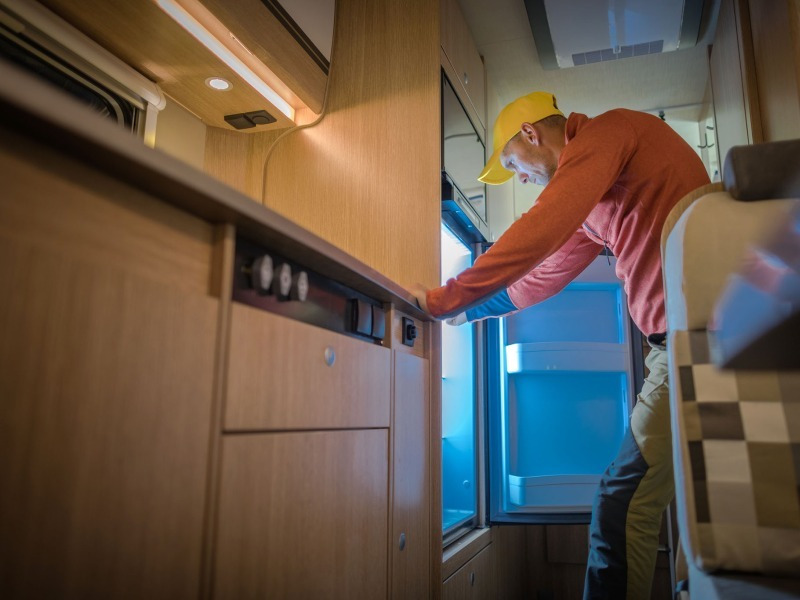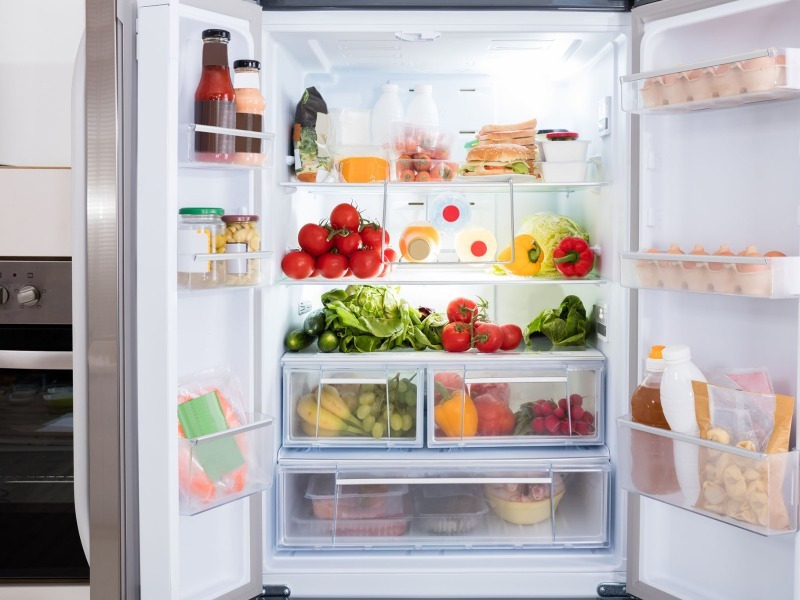Thanks for your support! If you make a purchase using our links in this article, we may make a commission. And, as an Amazon Associate, I earn from qualifying purchases. See the full disclosure here.
The temperature of your RV fridge/freezer is a common challenge faced by avid travelers on the road. But on average your RV fridge temp should range between 34 and 40 degrees, and your freezer temp should be zero or lower.
Maintaining the right RV fridge temperature is of utmost importance.
It directly impacts the quality, freshness, and safety of the food we store, ensuring our meals remain delicious and our beverages stay refreshingly cool.
So, what magic number will keep your food fresh and your taste buds happy?
In this blog post, we delve into RV fridge temperatures, debunk common misconceptions, and equip you with practical tips and tricks to master chilling on the go.
Prepare to embark on a culinary adventure where your meals will be as satisfying as the miles you travel.
Are you ready to unlock the secret to a perfectly chilled RV fridge? Keep reading!
What Temperature Should My RV Fridge And Freezer Be Set At?
The temperature your RV fridge and freezer should be set is crucial to ensure your food stays fresh while on the road.
The recommended temperature settings for an RV fridge and freezer may vary depending on the specific model and manufacturer.
However, as a general guideline, it’s recommended to maintain your RV fridge temperature between 34°F and 40°F (1.11°C and 4.44°C) to keep perishable food fresh and safe to consume.
The recommended temperature for your RV freezer is 0°F (-17.78°C) or below.
You will preserve frozen food well at this temperature and prevent harmful bacteria growth.
Check the temperature regularly with a fridge/freezer thermometer, as fluctuations in outside temperature and frequent door openings can affect the internal temperature.
Adjust the settings to maintain the ideal temperature for food safety and quality.
How Can I Improve My RV Refrigerator Cooling?

Improving your RV refrigerator cooling is a crucial part of any RV trip. Unfortunately, RV refrigerators often encounter cooling issues, especially in hot weather.
Here are ten tips to help you improve your RV refrigerator cooling and ensure your food stays fresh and delicious.
1. Proper Ventilation
The refrigerator requires proper ventilation to…
Click Here to Read the Full Original Article at RVBlogger…
